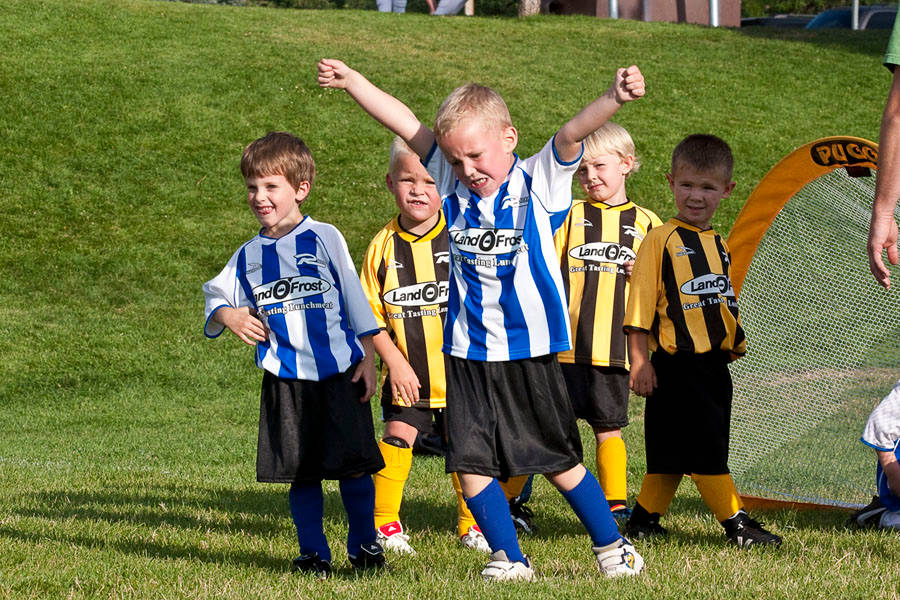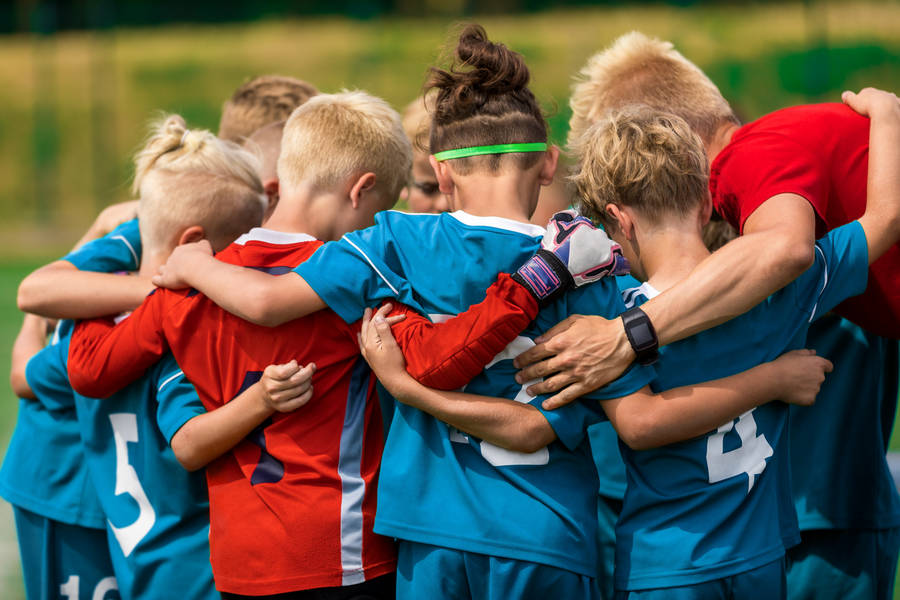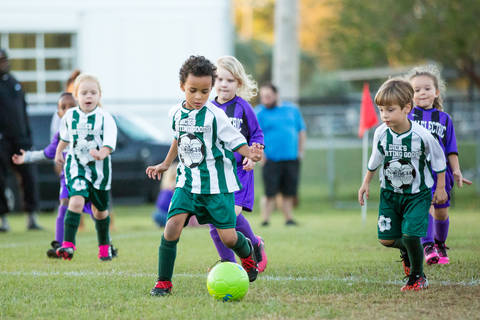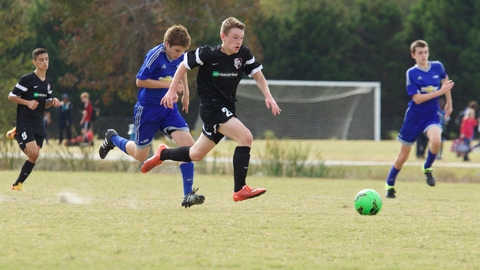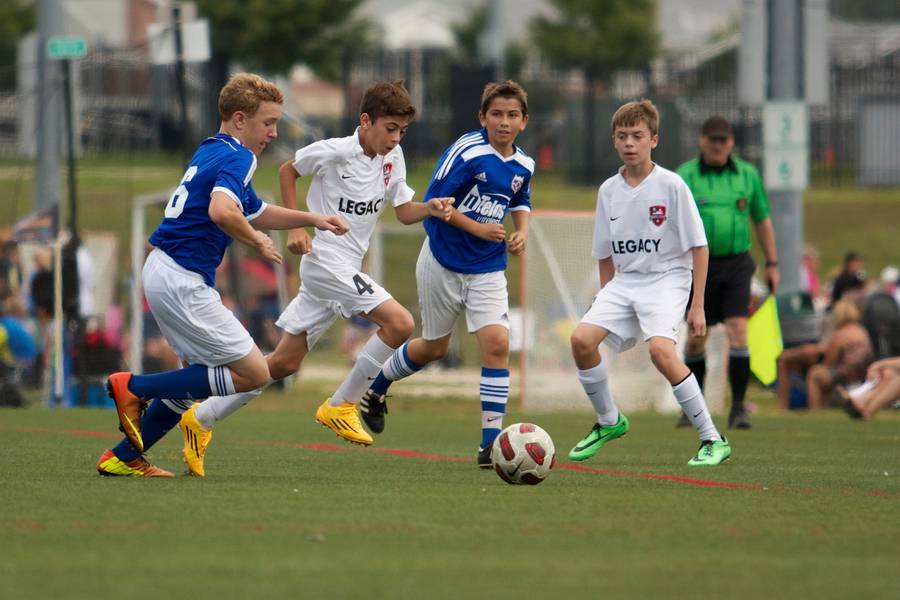
Our world with its familiar chilly weekend morning sounds of boots meeting ball, encouraging shouts of parents and coaches and the jubilant cheers of teammates that echo across its muddy pitches is one that we all love and cherish. Walking from pitch to pitch last Sunday as four games were being played simultaneously, it struck me how on the face of it each game was just another football match being played out, but as I looked more closely the tapestry of community was there in front of my eyes. It reinforced how the power of grassroots football lies not in the winning or losing or even the techniques being honed on the pitch, but in its unique ability to bring people together forging friendships that extend far beyond the white lines of the pitch.
In an era where digital connections often supersede face to face interactions, grassroots football stands as a pillar of real world community building. At its core, I think grassroots football is about more than just the game itself, it can be a social glue that binds people together, a catalyst for personal growth and a mirror reflecting the changing face of British society. From the windswept coastal pitches of Cornwall to the compact urban spaces of inner city London, grassroots football serves as a unifying force, bringing together people from all walks of life in pursuit of a shared passion.
The power of grassroots football lies in its accessibility. Unlike the rarified air of professional football, with its high-stakes transfers and eye-watering salaries, the grassroots game remains open to all. It's a place where a child's dreams of becoming the next Harry Kane or Lucy Bronze can take root, nurtured by dedicated volunteers and supportive communities. But it's also a space where those who will never get close to gracing a professional pitch can find joy, camaraderie and a sense of belonging.
Recent research by the Football Association paints a vivid picture of the scale and impact of grassroots football in England alone. With over 7 million players participating regularly, supported by nearly 500,000 volunteers the grassroots game touches the lives of countless individuals and families across the country. However these numbers, impressive as they are, only hint at the true value of grassroots football to British society.
The inclusive nature of grassroots football is perhaps its most powerful attribute. Unlike the professional game, which can sometimes feel distant and exclusive, grassroots football is open to all. Young or old, skilled or novice, everyone has a place. This inclusivity extends beyond just the players, it encompasses the entire ecosystem of volunteers, supporters and families that make up the grassroots football community.
Hackney Wick FC for example, is a grassroots club founded in 2015 in one of London's most deprived boroughs. The club's ethos goes far beyond football, actively working to combat knife crime and gang culture by providing young people with alternatives and support. Through football, they've created a platform for mentoring, education and personal development that has changed lives and strengthened the local community.
This sense of belonging and shared identity is a recurring theme in grassroots football across the UK. In urban areas, where communities can sometimes feel fragmented, local football clubs often serve as vital anchors. They provide a sense of continuity and connection in rapidly changing neighbourhoods, offering a space where longtime residents and newcomers alike can come together and find common ground.
Research conducted by the Football Association has shown that participation in grassroots football is associated with improved mental health, increased social connections, and a stronger sense of community belonging. For many, their local football club becomes a second family, a support network that celebrates their victories and stands by them during challenging times.
This supportive environment is particularly crucial for young people. In an age where youth mental health concerns are on the rise, grassroots football offers a vital outlet for physical activity, social interaction, and personal development. The lessons learned on the pitch - teamwork, resilience and leadership – are invaluable life skills that serve young players well beyond their footballing lives.
In diverse communities across the UK, local football clubs have become important pockets where cultural barriers are broken down and mutual understanding is developed. A local club to us has actively worked to integrate Syrian refugees into their club and welcomed them into the local community through football.
Also, in an era where intergenerational mistrust is growing, local football clubs often provide a unique space where age gaps disappear. Grandparents cheer on the sidelines and share stories of matches from decades past around the dinner table, while teenagers teach them about the latest football video games.
The volunteer ethos that underpins grassroots football is another crucial element of its community building power. From the coaches who dedicate their evenings and weekends to training young players, to the parents who run the tuck shop or maintain the pitch, grassroots football relies on a network of dedicated volunteers. This culture of volunteerism not only keeps the clubs running but brings about a sense of shared responsibility and ownership within the community.
The power of grassroots football to unite communities has been particularly evident during times of crisis. During the COVID-19 pandemic, when social distancing measures threatened to fray community tensions, many grassroots football clubs stepped up to support their local areas. From delivering food parcels to vulnerable residents to organising online fitness sessions for isolated members, these clubs demonstrated their role as pillars of community resilience.
However, it's important to acknowledge that grassroots football faces significant challenges. Funding cuts, the loss of playing fields to development, and the increasing costs associated with running a club all pose threats to the sustainability of grassroots football. Yet, it's precisely because of its deep roots in communities that grassroots football needs to and continues to persevere. It reminds us that despite our many differences, we all have something in common and that can and do create more connected communities through football. In a world that often feels divided, our game offers a powerful reminder of the things that bring us together.

